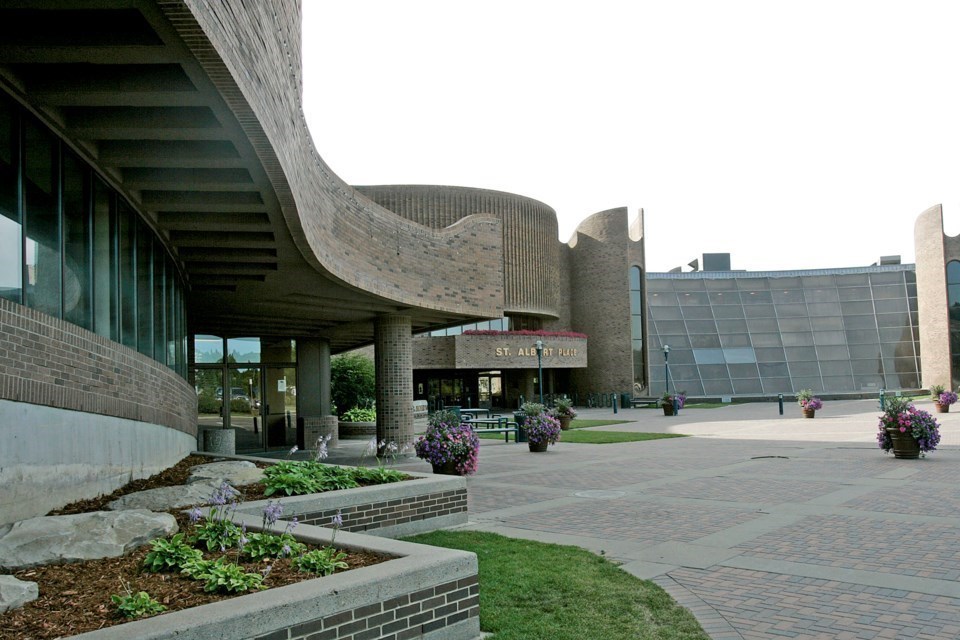St. Albert city council is considering a change to how frequently municipal censuses are completed, as a plan to conduct one every five years rather than every two years starting in 2023 will be up for a vote next month.
During the Jan. 17 standing committee of the whole meeting, council unanimously passed a recommendation from administration to undertake a municipal census every five years, which, beginning this year, will occur at the approximate middle point between the federal government's census that also takes place every five years. The most recent federal census was completed in 2021.
Despite being passed unanimously in the committee meeting, council will need to pass the motion again during a regular council meeting next month in order for the policy to be changed. As the recommendation still needs to be approved by council, a time-frame of when a census will occur this year has not been determined yet.
Council heard on Jan. 17 that the estimated cost of this year's census ($160,000) was included and approved as part of the 2023 budget, although $127,887 of that cost will be covered through what remains in the city's census reserve.
If the recommendation is approved, $40,000 funded through taxes will be added to the reserve each year to fund the census every five years, a backgrounder prepared by the city's director of legal and legislative services, David Leflar, read.
"This would build up a fund of $200,000 for a census every five years," Leflar wrote. "We expect that should be enough funding to do a high quality and useful municipal census every five years for the foreseeable future."
During the meeting, Mayor Cathy Heron said she was supportive of administration's recommendation, but she was concerned that council was unaware the cost of this year's census was included in the 2023 budget.
"It felt like it was buried in the budget," Heron said. "I actually [searched] the word 'census' in the entire budget document [and it was] not there."
Many councillors spoke in favour of the change during the meeting, and acknowledged the value municipal censuses bring to city decision making.
"It's critical in the sense of understanding the importance of getting accurate census data because it feeds our service levels, and it feed all of our grants that not only we get from different levels of government but also the grants we send out to our own residents," Coun. Ken MacKay said.
Coun. Natalie Joly also supported administration's recommendation, saying, "I think this kind of information is so valuable as we get into planning for everything, so I really appreciate the pitch and I look forward to seeing the results of this year's census."
Coun. Sheena Hughes said completing the census is important so that the city doesn't rely on other government's methods of population tracking.
"Actually taking some control over that, especially because there's so much involved with [provincial] funding, is absolutely necessary to acknowledge," Hughes said.
After the city's last census was completed in 2018, council voted to suspend future censuses due to the provincial government's 2019 decision to no longer use municipal population figures to determine per-capita grant funding, and instead rely on in-house estimates based on the most recent federal census, according to Leflar's backgrounder.
However, during the committee meeting Leflar said that the Ministry of Municipal Affairs has informed administration that work is being done to reverse course, and an announcement is expected early this year that the province will return to using municipal census numbers to inform grant funding decisions.
Leflar also wrote in the backgrounder that council's decision to postpone the 2020 census and look at changing the frequency was also due to the province's plan at the time to end the Municipal Sustainability Initiative (MSI) grant program, which would mean a significant drop in funding for St. Albert.
The province's plan to end the program meant "cost cutting for the 2020 budget [was] a high priority" for St. Albert's council, Leflar wrote, adding that the cancellation of the 2020 census meant $90,000 was reduced from that year's tax base.
Since then, the provincial government has announced that the MSI program was being replaced with the Local Government Fiscal Framework (LGFF).
The LGFF, which comes into force in 2024, will still provide municipalities with needed funding, however the formula for which municipalities funding allocations are calculated has yet to be finalized. Next year the LGFF will distribute $722-million to municipalities, although $382-million is to be split between Calgary and Edmonton.




